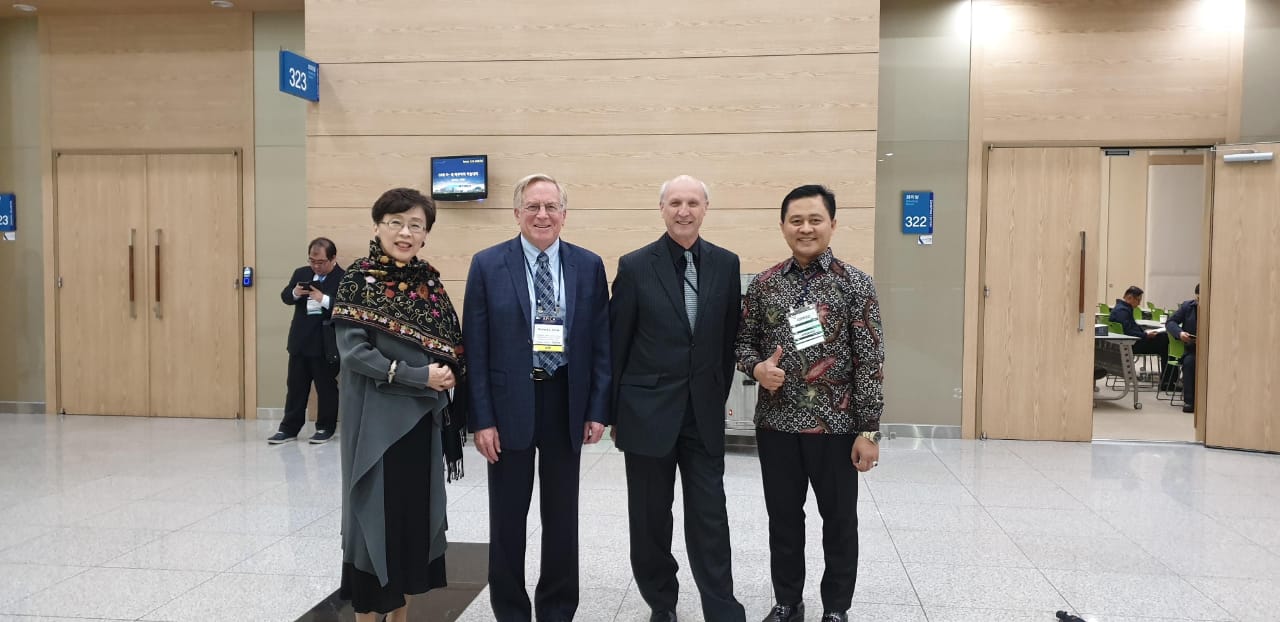UNAIR NEWS – Department of Anatomy, Histology and Pharmacology (AHF), Faculty of Medicine, Universitas Airlangga (FK UNAIR) improves the lecturers’ performance paper publications to support the SMART University program. In 2020, the AHF department published 62 works in national journals, Q1-Q4 international journals, non-Scopus indexed international journals, and books with ISBNs.
Prof. Dr. Abdurachman dr., M. Kes., PA (K), Head of Department of Anatomy, Histology and Pharmacology (AHF) FK UNAIR, said that scientific publications improvement can be done by giving sufficient time for lecturers to come up with ideas with other researchers and individual research groups, and provide support systematically through coaching and mentoring programs.
“The Histo-engineering and Photomicroscopic Lab supports the research of lecturers and students with national and international journal outputs supported by histology staff as consultants,” said the First Doctor of Gross Anatomy in Indonesia.
In addition to increasing publications, the department also conducts a lot of research to develop existing scientific fields to solve various problems in society.
“We have tested the manufacture of medicinal plant extracts, tested the toxicity of medicinal substances in experimental animals, and most recently the clinical trials of drugs and vaccines for Covid-19,” explained the chairman of the Indonesian Anatomist Association (2008-2011).
The involvement and collaboration between lecturers and various national or international institutions are also encouraged in supporting the SMART University program. Such as collaboration with BPOM – the National Committee for Traditional Medicines and Food Supplements Assessment, Boehringer Ingelheim Japan, and Mitsubishi Tanabe Pharmaceutical Company Saitama Japan.
Regarding the development of science, the department has an ASAD-C laboratory that collaborates with the department of clinical surgery, anesthesia, obstetrics and gynecology, urology, and other departments.
“The ASAD-C laboratory is used to hold national and international anatomy dissection / surgical anatomy workshops supported by competent staff in the field of anatomy,” said the Executive Board Member of APICA.
Furthermore, the department also reactivated the Clinical Pharmacology Functional Medical Staff (SMF) at Dr. Soetomo (RSDS), opening of the SMF Clinical Pharmacology at Universitas Airlangga Hospital (RSUA), as well as the establishment of the Clinical Pharmacology Medical Specialist Education (Sp-1) Study Program.
“Previously, the Pharmacology SMF had been running in RSDS, but due to limited staff problem, the SMF was inactive for some time. The Department of Pharmacology is ready to be active after having human resources for teaching staff with the appropriate competencies and degrees (Clinical Pharmacology Specialist / Sp.FK),” he said.
The department has produced many graduates who have taken part and made history in their respective fields. First, Prof. Bambang Rahino Setokusumo as Chairman of PB PAAI in the 1970s, Rector of UWK, Rector of Stikes, as well as member of DPR / MPR from Golkar during Pak Harto’s era. Second, Prof. Ma’rifin Husein, M.Sc., Sp.FK is a pioneer in the system development of nursing higher education in Indonesia, and many more.
The department also has annual programs such as community services by lecturers in the form of social services, health counseling as well as health exams and free treatment, adjunct professor program with Prof. Maarten J. Postma – University of Groningen, the Netherlands, and DECOTA: Saovaros Svasti / Pinyo Rattanaumpawan from Mahidol University.
Various challenges in the pandemic era must be faced by the department, such as improving the quality of education in both anatomy and histology as direct use of wet labs (cadaver) and microscopes are not allowed. Furthermore, other challenges include the qualifications and competence of the administrative staff that do not support the acceleration of department’s development and inadequate learning facilities and research tools related to pharmacology.
“We consider the challenges as an opportunity to improve all aspects that still have shortcomings, of course, all of them are linear with the UNAIR program, SMART University,” concluded Prof. Abdurachman.
UNAIR, as one of the best universities in Indonesia, encourages the entire academic community to be globally competitive. (*)
Author: Adelya Salsabila Putri
Editor: Khefti Al Mawalia





